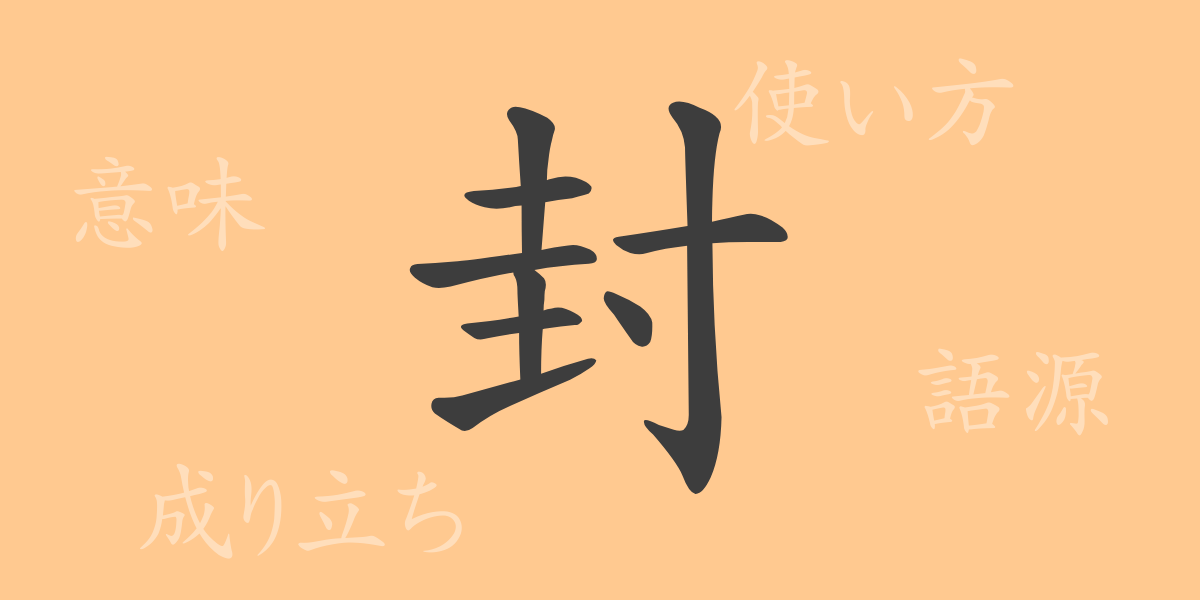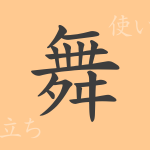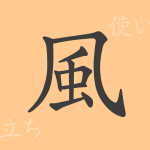The history and meaning contained within a single kanji character symbolize the depth of Japanese culture. “封” (fū) is one of the kanji frequently seen in everyday life, with its usage spanning from ancient times to the present. In this article, we will delve into the origins, modern usage, readings, and compound words of the commonly used kanji “封” (fū) to unravel its charm.
Origins of 封 (fū)
The kanji “封” (fū) originates from the feudal system of ancient China. “封” (fū), meaning to grant land, is composed of “土” (tǔ), representing land, and “寸” (cùn), symbolizing the act of granting. This character signifies the power to grant land, used by ancient kings and emperors when bestowing territories upon their vassals.
Meaning and Usage of 封 (fū)
The kanji “封” (fū) has multiple meanings. One is “to close” or “to seal,” used when sealing letters or containers. It also retains the meaning of “granting land” from feudal times, particularly in historical contexts. Additionally, as seen in compounds like “封建” (fēngjiàn, feudalism) and “封建制度” (fēngjiàn zhìdù, feudal system), it has applications related to social systems.
Readings, Stroke Count, and Radical of 封 (fū)
The kanji “封” (fū) possesses a richness in form and meaning.
- Readings: The on’yomi (音読み) reading is “ホウ” (hō), and the kun’yomi (訓読み) reading is “ふうじる” (fūjiru).
- Stroke Count: It has a total of 15 strokes.
- Radical: The radical of “封” (fū) is “寸” (cùn).
Compounds, Idioms, and Proverbs Using 封 (fū)
Compounds and idioms containing “封” (fū) reflect its historical background and meanings. For example, “封建” (fēngjiàn) refers to the feudal system, and “封書” (fūsho) means a sealed letter. Additionally, the expression “封を切る” (fū wo kiru) is an idiom used to signify starting something new, often implying a fresh start.
Summary of 封 (fū)
The kanji “封” (fū) offers a wide range of knowledge from its form to its meanings and history. From historical backgrounds to everyday usage, this single character encompasses many stories. Even in modern Japan, “封” (fū) remains an important kanji used in various contexts such as letters and contracts. We hope this article has helped you appreciate the multifaceted nature and charm of “封” (fū).
“`

























